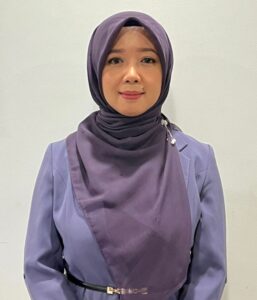Abstract
This seminar seeks to examine the Indonesia’s defence development under the current administration of President Prabowo Subianto. The Indonesian government recently announced the plan to establish 100 Territorial Development Battalions. Additionally, during the 2024 Indonesian National Armed Forces (TNI) leadership meeting, TNI Commander General Agus Subiyanto highlighted the intention to review the Joint Regional Defence Command (Kogabwilhan) system. On top of that, the TNI has also been tasked with supporting President Prabowo’s flagship initiatives, notably the free nutritious meal programme (MBG) and food estate projects. These developments have signalled a potential shift in military organisation and strategic priorities.
This seminar will explore these key questions: How do these developments affect TNI’s force structure? What strategic priorities underpin the Prabowo administration’s approach to military development? By addressing these issues, the seminar aims to provide a comprehensive understanding of the TNI’s evolving role in Indonesia’s defence and broader national agenda.
About the Speaker
 Curie Maharani is currently a lecturer, specialising on Security Studies, at Bina Nusantara (Binus) University, adjunct lecturer at STIN and Executive Director of Indo-Pacific Strategic Intelligence (ISI). She received her PhD in Defence and Security from Cranfield University in 2016. Previously, she received cum laude in her master’s study at Institut Teknologi Bandung, majoring in Defence Management, in 2007, and her bachelor’s degree at Universitas Indonesia, majoring in International Relations, in 2002. Prior to joining Binus, Curie had worked with the National Committee for Economy and Industry (KEIN), the Ministry of Defence of the Republic of Indonesia, National Development Planning Agency (Bappenas), as well as the S. Rajaratnam School of International Studies. She is an observer of defence procurement and industrial policy, offset, arms proliferation, and technology indigenisation issues. She was part of the Southeast Asian Young Leaders’ Program at the Shangri-La Dialogue in 2017 and 2018.
Curie Maharani is currently a lecturer, specialising on Security Studies, at Bina Nusantara (Binus) University, adjunct lecturer at STIN and Executive Director of Indo-Pacific Strategic Intelligence (ISI). She received her PhD in Defence and Security from Cranfield University in 2016. Previously, she received cum laude in her master’s study at Institut Teknologi Bandung, majoring in Defence Management, in 2007, and her bachelor’s degree at Universitas Indonesia, majoring in International Relations, in 2002. Prior to joining Binus, Curie had worked with the National Committee for Economy and Industry (KEIN), the Ministry of Defence of the Republic of Indonesia, National Development Planning Agency (Bappenas), as well as the S. Rajaratnam School of International Studies. She is an observer of defence procurement and industrial policy, offset, arms proliferation, and technology indigenisation issues. She was part of the Southeast Asian Young Leaders’ Program at the Shangri-La Dialogue in 2017 and 2018.



 Add to Google calendar
Add to Google calendar
 Add to Outlook calendar
Add to Outlook calendar
